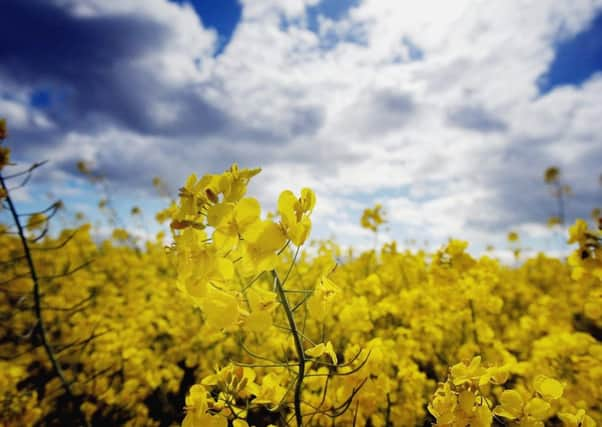Scotland risks being ‘anti-science’ with GM ban


The Royal Society of Edinburgh (RSE) has accused the Scottish Government of using “emotive language” and warned it could damage the prospect of attracting top researchers to come and work in Scotland in future.
Nicola Sturgeon has admitted that the decision was not based on scientific evidence and came under fire yesterday from opposition MSPs over the issue. The First Minister said the ban was imposed to protect the “clean and green” reputation of Scotland’s lucrative food and drink sector.
Advertisement
Hide AdAdvertisement
Hide AdBut the Society has issued a call for a “rational debate” on the issue of a new advisory paper.
It stated: “Scientific advice should be available to government ministers and civil servants when considering policy issues related to science.”
The “ambiguous responses” from ministers suggest the Chief Scientific Adviser for rural affairs, food and the environment was not involved in the decision, the paper states.
Concerns are also raised over the absence of a Chief Scientific Adviser in Scotland and vacancies on the Scottish Scientific Advisory Council.
It added: “This regrettable coincidence could create a perception of an ‘anti-science attitude’.”
Professor Nigel Brown, a fellow of the RSE, said: “Scotland is renowned for its world-class scientific research, therefore it would be regrettable to stigmatise an area of exciting development which provides real scope for global benefit.”
The assumption of “public hostility” towards GM is also not backed up evidence, the paper states, with recent polling suggesting that there is a wider acceptance. The ban could damage business growth, with Scotland looking to the bio-economy to deliver a “significant proportion” of future prosperity.
Much of Scottish agriculture is also reliant on imported fertilisers and animal feed from South America, which is “far from clean and green”.
Advertisement
Hide AdAdvertisement
Hide AdInstead, many new GM crops under research are aimed at cutting fertiliser and pesticide use or reducing soil damage.
Ms Sturgeon told MSPs yesterday: “We will consider the report from the Royal Society of Edinburgh very carefully and take whatever action is required.
“Our scientific advisor was consulted on the scientific background, which was made available to ministers prior to this decision, but that was not our primary factor in reaching a conclusion.
“We took the decision we took on GM crops because we wanted to protect our food and drinks sector, and protect the clean, green environment on which the success of that sector depends. It is everything to do with jobs and it is everything to do with industry.”
The European Union said earlier this year that its 28 member states could adopt their own positions on GM crops. Many countries, including Germany and France, have banned them.
Scotland announced its ban in August while Northern Ireland has recently followed.
GM crops will be allowed to be grown and marketed in England if they meet risk assessments on safety, the UK government has said.